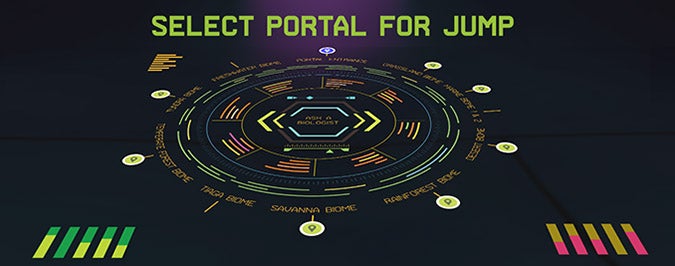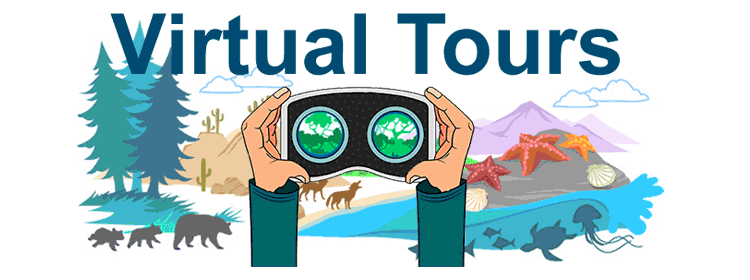
Virtual Tours in Biology
Want to explore the world of biology, but don't have time to take a field trip? Check out our biology virtual reality tours. Whether you want to teleport to locations around the world, travel through time between seasons, or shrink down to take a tour inside a bee hive, our virtual field trips are a great place to take a virtual trip with your computer or mobile device.
Biomes 2.0
For those who have been exploring our biomes, we have a new version of the tours, or version 2.0. These tours now include our tour guide, Bella, who can read the text in our collection of new galleries and videos. We also released the first of our marine biomes complete with sharks, coral reefs, and a shipwreck. Please send us your feedback and suggestions.
There is a new portal circling Earth that you can use to teleport to entirely different biomes around the world.
How To Explore the Virtual Tours
![]() Our 2.0 tours include the icon information and tips. If you are using the older 1.0 version tours we have included information below in the expandable sections.
Our 2.0 tours include the icon information and tips. If you are using the older 1.0 version tours we have included information below in the expandable sections.
On a computer, smart phone, or tablet you can click or touch the Location icon to move to the new area. When using goggles, you place the pointer on top of the Location Icon to move to a new area. Below are the other icons you will find in the different tours. Review the list below before you jump into these virtual worlds.
These new tours have been made possible by the work of the following people. Without them we could not have brought you the new interface and new tours.
- Tony Redhead(link is external) - VR interface designer extraordinaire.
- Andrew James Ferris - Freediver, VR photographer, and your guide to the Pacific ocean tour stops.
- Captain Seawolf - Our trusty captain for the Bahama marine tour stops.
- Dimensions.com(link is external) - Animal dimensions and illustrations used with permission.
- Additional funding by ASU Learning Enterprise

Zoom into the VR image.
Zoom out from the VR image.
Auto rotate the VR image.
Open and close the tour thumbnail images.
When thumbnail images are open, checkmarks are visited locations.
Move between sterographic image options.
Gyroscope On/Off. Visible only with mobile phones and tablets for magic window experience.
Goggles. This icon is visible only when using mobile phones.
Enter full screen.
Exit full screen.

Information Icon - information about a point of interest.
Location Icon - takes you to a different location.
Image Icon – opens close-up image.
Time Travel Icon – Move forward in time in the same location.
Time Travel Icon – Move backward in time in the same location.
Video Icon – opens and plays videos.
CC Icon – opens text box of any audio file that has a voice track. Usually located at the bottom right of the activation zone for the audio file.
Leave Virtual Tour – Leave the tour and go to additional information.
Take a Virtual Biome Field Trip
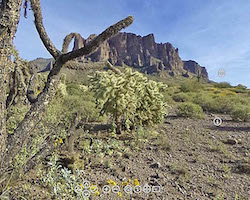 | Desert summers may seem too hot and dry to support much life, but plenty of plants and creatures can be found in the desert, if you just look and listen closely. Visit the Sonoran desert of Arizona (without breaking a sweat) to see what animals you find, then visit Delving into Deserts for more information. Looking for the older version 1.0? |
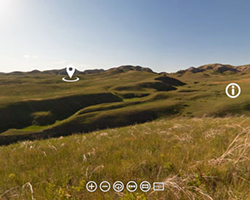 | Grasslands may sound like they don't have much more than grass to explore, but all grasslands are very diverse places. Visit the United States prairie grasslands to get a peek at some of the plant and animal life found there. Then, visit Grasping Grasslands for more information. Looking for the older version 1.0? |
| Marine - 1 is our first marine virtual tour and it focuses on the intertidal zone. There is a lot to see in this tour including sharks, jellyfish, sea turtles, barracuda, coral reefs, shipwrecks, and a whole lot more. Be sure to dive into this biome. If you haven't already, you should visit the Marveling at the Marine Biome story. This tour is only available in the 2.0 version. | |
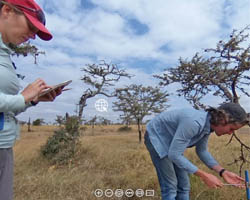 | Savannas seem dry, but they are filled with many plants and animals that live in this biome. Join biologist Beth Pringle and her research team as they travel in the savanna of Kenya Africa. Be sure to find Beth and click on her to listen to her talk about her research and animals they see on this virtual tour. Looking for more? Try our Searching the Savanna story. Looking for the older version 1.0? |
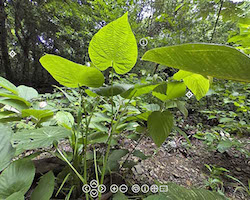 | Tropical rainforests are packed with life, whether it is up above you in the canopy, hiding behind a leaf, or marching alongside your feet. Though you won't be able to feel the humid air surrounding you, this virtual tour takes you deep into the rainforests of Panama. After you've explored all this biome has to offer, visit Revealing the Rainforest for more information. Looking for the older version 1.0? |
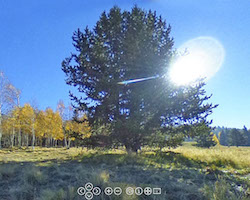 | Temperate forests are known for their warm summers, chilly autumns, and freezing winters. Explore this forest across time and seasons to see the colors of the leaves change. If you don't get lost in all that this tour has to offer, make sure to visit Taking in the Temperate Forest for more information. Looking for the older version 1.0? |
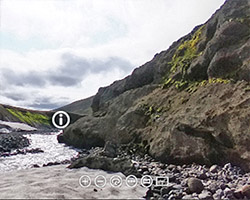 | Tundras are cold, wind-swept areas where low-growing bushes, grasses, and mosses seem to rule the land. Travel around the country of Iceland to check out many faces of the tundra, but without the biting cold. This tour has some extra stops, so make sure to check the thumbnail menu so you don't miss any locations. Want to learn about life in the tundra? Visit Trekking Through Tundra for more information. Looking for the older version 1.0? |
Take a Virtual Laboratory Tour
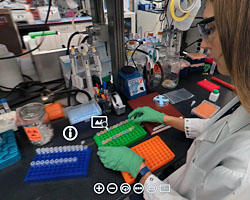 Educators note that video links in this tour are hosted on Vimeo. | Universities do more than teach students. They have ongoing research programs that help us better understand how things work. They are also the incubators for many future discoveries that are used in products such as medicine for treating sick patients. University laboratories also provide opportunities for students to get hands-on experience doing research. This virtual 360 tour takes you inside the Varsani laboratory in the ASU Biodesign Institute. Here you get to learn a little about this team of scientists who are hunting for viruses. This tour is only available as version 1.0. |
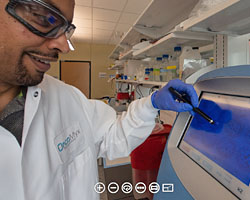 | Taking a discovery and developing it into a usable product is often the work of new startup companies. This virtual 360 tour takes you inside a startup company called OncoMyx. Here the scientists are working with a virus that is being transformed into a tool for treating some cancers. Along with the scientists, there are non-science focused people who make sure all the things needed to run a company are in place. Jump into this tour and you will be able to meet a wide variety of people who help this company run. This tour is only available as version 1.0. |
Watch Animal Behavior Virtually
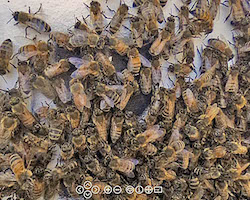 | What's all the buzz about in this bee colony? This tour takes you to a spot you'd never be able to visit physically... inside of an active bee hive. Learn about bees in this virtual tour and make sure to visit our paired bee story, Bee Bonanza. This tour is only available as version 1.0. |
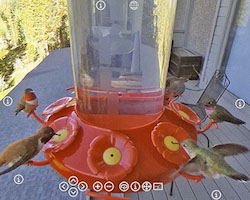 | Learn about the hummingbirds that had to fight for their spot on this feeder. The hummingbird feeder tour gets you up-close and personal with a bird that's usually too fast to offer you a good look. Learn more about hummingbirds in our paired story, Hummingbirds. This tour is only available as version 1.0. |
Additional images via Wikimedia Commons. Frozen wetland by Famartin.
View Citation
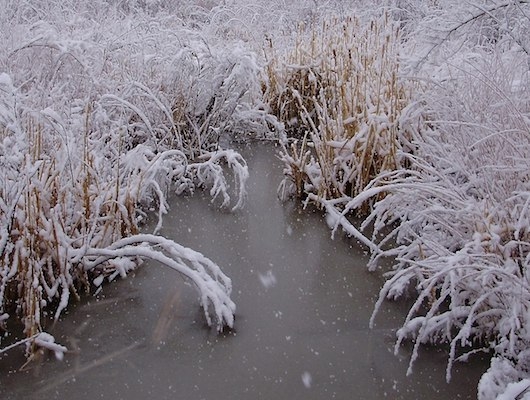
Already explored all of our virtual tours? Make sure to check back soon, when we will be adding more virtual biology tours, including a tour of the freshwater biome.
Be Part of
Ask A Biologist
By volunteering, or simply sending us feedback on the site. Scientists, teachers, writers, illustrators, and translators are all important to the program. If you are interested in helping with the website we have a Volunteers page to get the process started.







